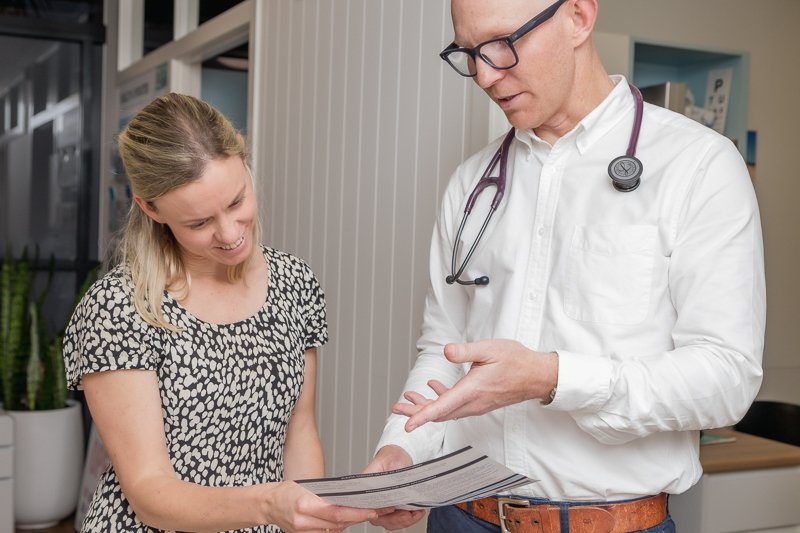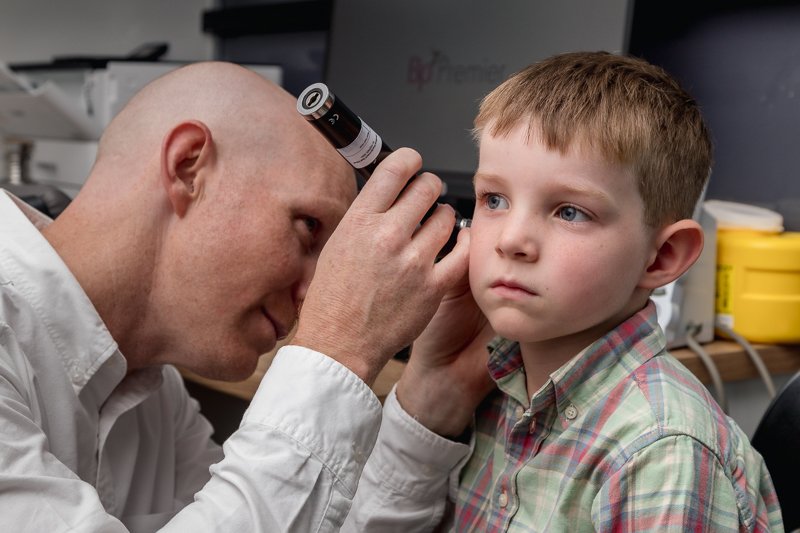Skin Cancer Screening: What to Expect in Your Consult
There’s so much to love about an Australian summer – the beach fun, the pool parties, the BBQs.
But the Aussie sunshine has a kick to it. Australia has the highest incidence of skin cancer in the world. Our clear blue skies and our proximity to the equator create high levels of ambient UV radiation. And that powerful sunshine is beating down on a predominantly fair-skinned population.
As the weather heats up, it’s time to get your skin checked.
Why go for a professional skin check?
Hopefully, you’re regularly checking your own skin for moles that are:
● New
● Getting bigger or changing colour
● Raised, lumpy, rough or scaly
● Itchy or tingly
● Bleeding or weeping
● Look different from your other ones.
Ideally, you would be checking your whole body in the mirror. You’d undress completely and check every part of your skin, from your scalp to the soles of your feet, using a hand-held mirror to check any bits that are difficult to see.
When was the last time you checked your own skin that thoroughly?
While you should check your own skin regularly, you should also get a professional skin check once a year.
Your doctor is trained to identify suspicious skin changes using tools and techniques that show more than the naked eye can see.
What happens at a skin cancer check?
Your GP will begin by asking about your medical history, lifestyle, and family history to learn whether you’re at high or low risk of skin cancer.
If you’re concerned about certain moles, we’ll take a good look at them. We can measure and monitor them or, if necessary, advise you on treatment.
With your permission, we can also perform a comprehensive skin check. We’ll ask you to take off everything except your underwear, then we’ll examine you carefully and slowly from head to toe (and in between your toes!).
What happens if you find anything?
Often, we don’t find anything suspicious.
If we do suspect skin cancer, then we may take a small tissue sample for testing, which is known as a biopsy. The whole lesion may need to be excised if it has enough suspicious features. This will be discussed with you and your consent obtained. If it shows you have skin cancer then we will:
● Explain the diagnosis to you
● Reassure you that most skin cancers are successfully treated, especially if they’re diagnosed early
● Treat your skin cancer ourselves if possible. How is skin cancer treated?
There are several different ways to treat skin cancer depending on:
● Its type, size and location
● Your overall health and medical history, including any medication you take for other conditions
● Whether the cancer has spread to other parts of your body.
In some cases, creams or gels can be used to treat skin cancer but surgery is the most common treatment. It’s a relatively minor procedure, often performed by GPs, where we give you a local anaesthetic, make a small incision and cut out the cancer, plus a ring of healthy skin around it. We send that off to the lab to be tested to make sure all the cancer has been removed.
If your skin cancer needs a different type of treatment that can’t be done in primary care, we can refer you to the right specialist, such as a dermatologist, oncologist or surgeon, depending on your clinical needs.
As your GP, we’ll remain involved in your care, liaising with your specialists and supporting you along the way.
How can I reduce my risk of skin cancer?
Regular home checks and an annual professional skin check are two keys ways to reduce your risk of skin cancer.
You should also follow Sun Smart advice to protect your skin by:
● Slipping on clothing
● Slopping on sunscreen
● Slapping on a hat
● Seeking shade
● Sliding on sunglasses.
How can Peregian Family Medical Centre help?
Several GPs have special interests in skin conditions and minor surgical procedures. We’re keen to help you take good care of your health, and that includes providing skin checks, treatment and referrals.
Please look after your skin – book a skin check today.
Disclaimer
All information is general in nature. Patients should consider their own personal circumstances and seek a second opinion. Any surgical or invasive procedure carries risks.






